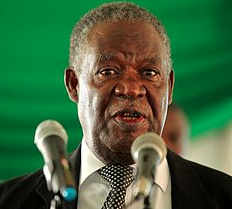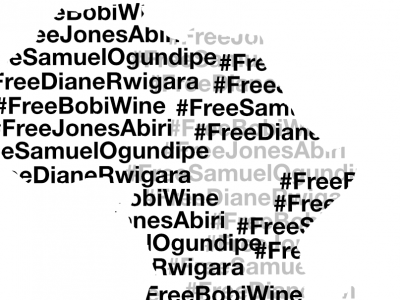Hae-in Lim, Lisa Ferguson, Ellery Roberts Biddle, Richard Teverson, Lakshmi Sara, Bojan Perkov, Sonia Roubini and Sarah Myers contributed to this report.
Global Voices Advocacy's Netizen Report offers an international snapshot of challenges, victories, and emerging trends in Internet rights around the world. This week's report begins in Zambia, where top officials recently rejected a draft constitution prepared by a coalition of government, academic and civil society representatives. Commissioned three years ago, the draft contained key protections for online publications and media workers. It comes as no surprise that the ruling Patriotic Front party has rejected the text — for nearly two years, top officials have spoken disparagingly of the country’s online media environment, charging that independent news outlets are spreading “falsehoods” and “gossip” and openly praising efforts to block sites including the Zambian Watchdog and Zambia Reports. Earlier this month, top Information Ministry officials disclosed plans to develop legislation intended to tackle a perceived increase in “Internet abuse” and cybercrime that they say has resulted from a lack of control over online media.
Free Expression: Chilling effects in Southeast Asia
Rights group Article 19 released an English translation of Cambodia’s draft Cybercrime Law which critics charge will chill freedom of speech. Article 28 of the law criminalizes online content that “slanders or undermines the integrity of any government agencies, ministries” or damages “family values.” The law also would grant broad powers to prosecutors to “order the preservation of computer data or traffic data.” Penalties for many offenses are higher than for their offline equivalents.
Zaw Pe, a video journalist for the Democratic Voice of Burma news site, was sentenced to a year in prison last week after being convicted of trespassing on government property. Pe had traveled to a state education department office during working hours to interview officials for a story on Myanmar’s education system. He will be one of five journalists known to be behind bars in the country. According to Forbes, there is reason to believe that the government has also resorted to hacking news sites and the personal email accounts of journalists. Recently, Myanmar journalists protested the persecution of media workers by blacking out the front pages of local newspapers.
As protests against the construction of a chemical plant in Maoming spread to Guangzhou, China’s online censorship instructions have leaked. State media continues to report the story, even as mentions of the protests are deleted from social media.
Thuggery: Nigerian engineer detained after tweeting about terror incident
A Nigerian engineer disappeared after reporting on an attempt by members of the Boko Haram terrorist group to escape a state detention facility. Yusuf Siyaka Ominisi tweeted eyewitness reports of the incident that resulted in a shootout, leaving 20 people dead. Ominisi, who tweets under @Ciaxon, was detained by Nigerian authorities who released him on April 12, almost two weeks after the incident occurred. Supporters called for the young man’s release with a small protest in Abuja, Nigeria’s capital, and by using the #FreeCiaxon hashtag.
ARTICLE 19 staff member Patrick Mutahi was detained by immigration officials in Ethiopia from April 3-4. After a swift campaign for his release, Mutahi was sent back to Kenya, where he is based, and given strict warning not to return to Ethiopia. ARTICLE 19 noted in a report on Mutahi’s detention that it is one of the few remaining global human rights organizations working in Ethiopia.
Privacy: Data Retention Directive may violate privacy rights, says EU Court of Justice
The European Court of Justice declared the EU Data Retention Directive invalid, arguing that it represents a serious interference with rights to private life and protection of personal data, which are both guaranteed by the Charter of Fundamental Rights of the European Union. Adopted in 2006, following terrorist attacks in London and Madrid, the Directive required telcos to retain users’ communications data for a minimum of six months and maximum of two years.
Pressed by US Senator Patrick Leahy during a budget hearing, USAID Administrator Rajiv Shah repeatedly denied knowing who created Zunzuneo, the US government-funded SMS network intended to foment a “Cuban Spring.” Subcontractors who developed and implemented the network obtained Cubans’ mobile phone numbers without their consent, stored both traffic and content data from the network, and scanned network messages for “political tendencies.”
Copyright: Torrent geeks applaud Spanish court ruling
Universal, Warner, Productores de Música de España (Spain’s national music producers’ association), and several other companies lost a lawsuit filed against Blubster, a Spanish file-sharing site that had been used to share, and in some cases pirate, music files. The group had appealed the case after a Madrid court ruled in 2011 that the site’s technology was neutral, and therefore not liable for damages claimed by the record companies. The appeals court that heard the case this time around upheld the previous decision. David Bravo, attorney for site creator Pablo Soto, said the ruling would provide protection from “inventive legal interpretations that define the very creator of a file-sharing tool as [responsible for] copyright infringement.”
Internet Governance: “Outcomes” of upcoming Sao Paolo meeting WikiLeaked
Governments, Internet companies, and Internet policy experts from around the world will converge in Sao Paolo on April 23-24, 2014 for the NETmundial Global Multistakeholder Meeting on the Future of Internet Governance. A comprehensive set of outcomes from the meeting, which has yet to be held, appeared on WikiLeaks late last week.
Netizen Activism: Tunisian activists launch transparency platform
In late March, Tunisian human rights and digital activism NGO Nawaat launched its own secure platform for sharing leaked documents. NawaatLeaks will work in partnership with GlobaLeaks, an open source and anonymous whistleblowing software program.
Curiosities: Crimeans are Russian now, according to social networks
Where exactly is Crimea? The answer might depend on where you Google it from. While GoogleMaps users in Russia will now find Crimea on the Russian side of the Ukrainian border, US users see a dotted line, suggesting its status is in dispute. On a similar note, Russian social networks Odnoklassniki (Classmates) and Moi Mir (My World) have begun identifying Crimean users as Russian. Facebook and the leading Russian social media site Vkontakte are still allowing Crimeans to register as Ukrainian.
A possible Banksy mural depicting three spies conducting surveillance on a telephone booth was spotted in Cheltenham, home of GCHQ, the UK’s main intelligence agency.
Publications and Studies
-
PEN Surveillance Metaphor Mapping Project – PEN American Center
-
Nigeria: How Africa’s Largest Economy is Prioritizing Affordable Internet – Alliance for Affordable Internet





1 comment